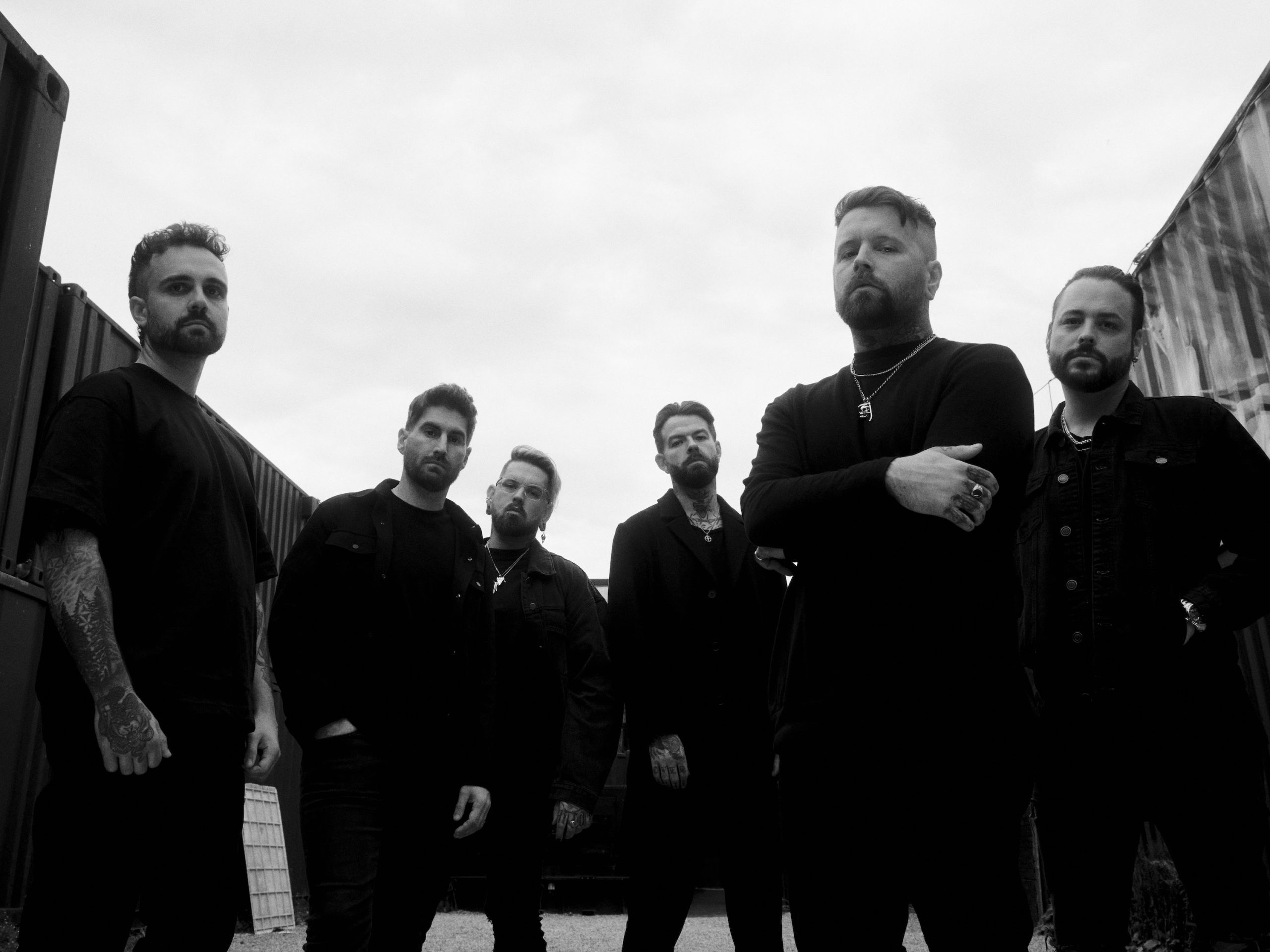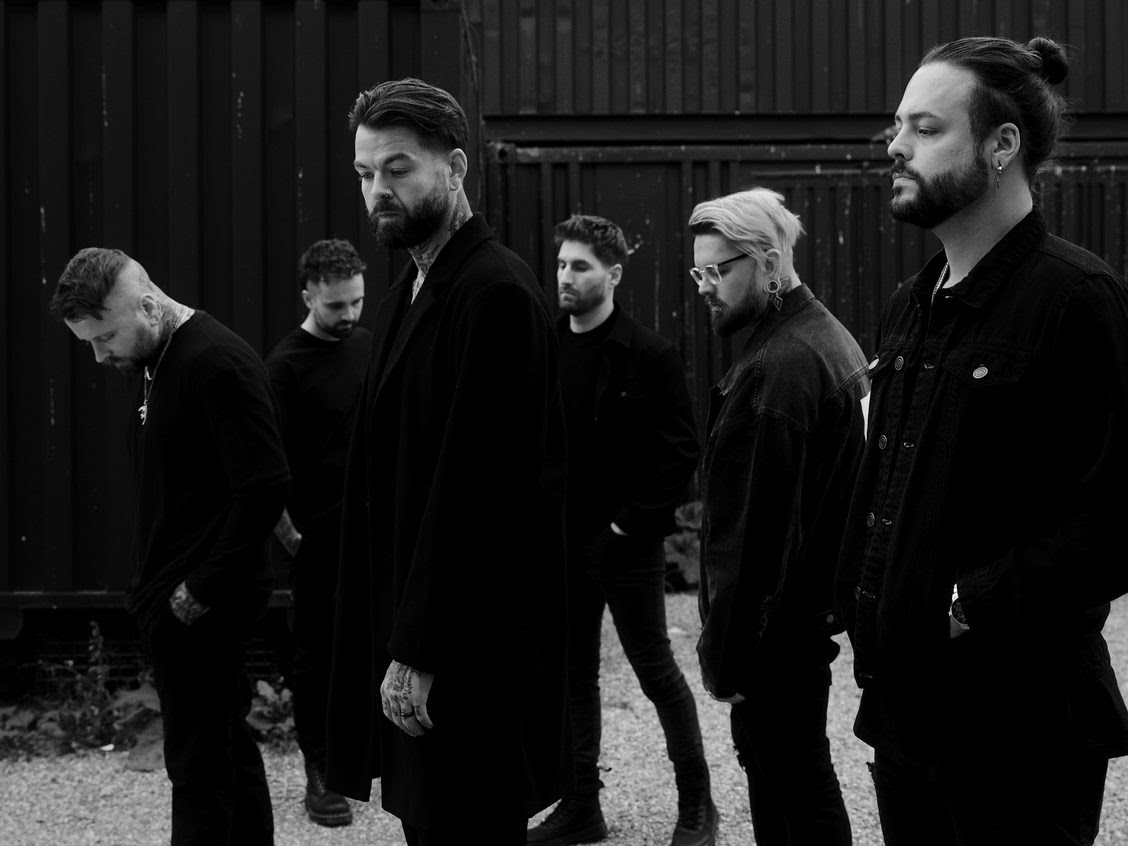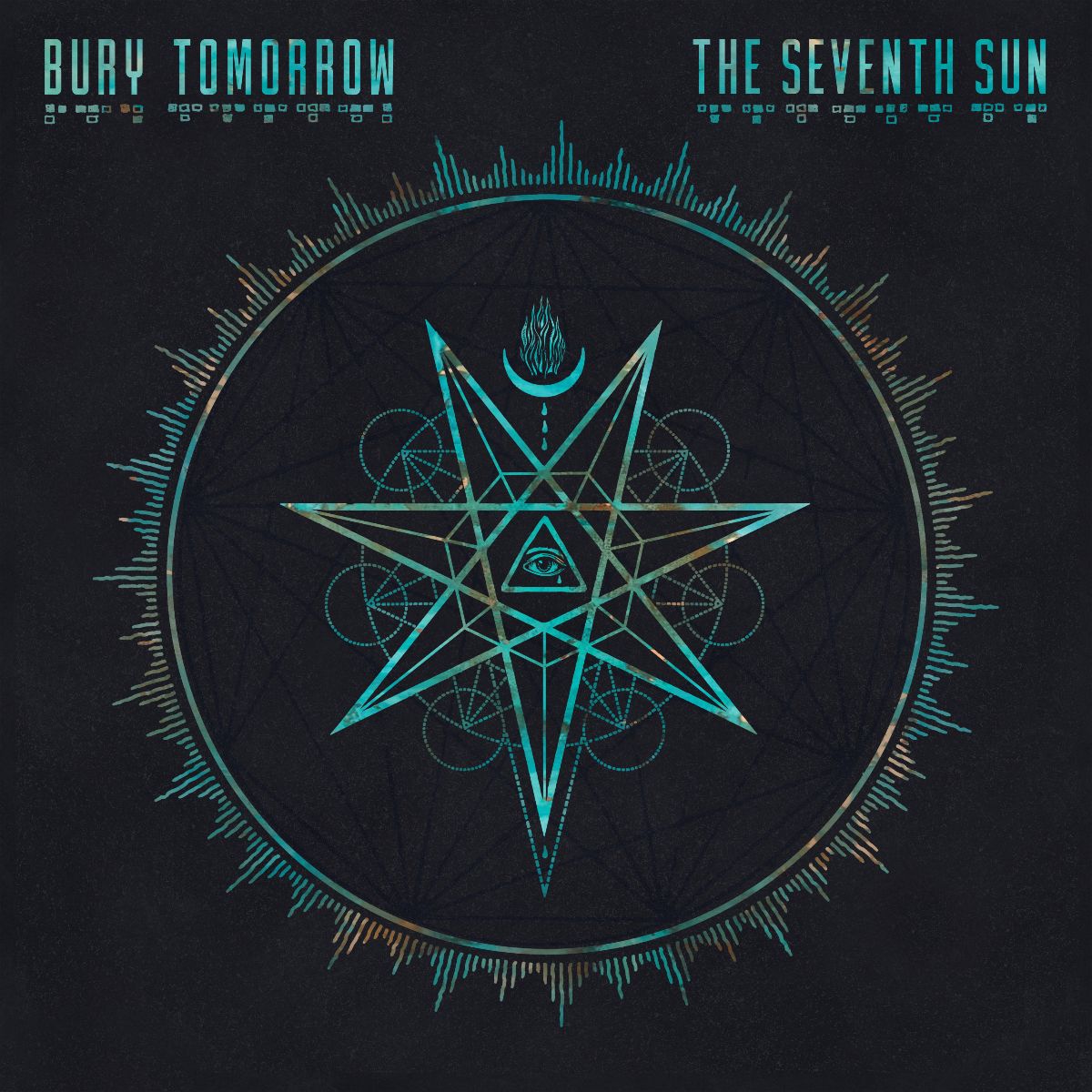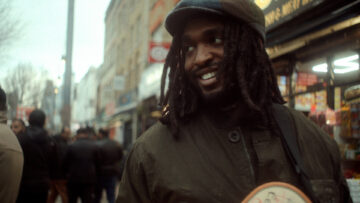
Most bands tell similar stories about the specific chapter in their careers that was blighted by the pandemic – be it about resting from relentless touring cycles, or churning out new songs as a way of giving themselves something to do. Others told bleaker stories, with live performing being cut off at the source, ailing mental health and finances running dry.
Bury Tomorrow’s pandemic diaries read differently. It might have been unfortunate that their 2020 album Cannibal was released only a few months into the crisis, and that a live audience didn’t hear those songs till they were just over a year old, but there were blessings to be found.
“I’m probably the only person to say it, but the pandemic did benefit us, because we were able to resonate with people,” reasons frontman Dani Winter-Bates. “The album itself is incredibly introspective – it was massively about my own journey with mental health and I’d been asking myself some quite hard-hitting questions around that. It was our most successful album to date and I think some of that was probably the resonance.”

Photo: Nic Bezzina
Those familiar with the Southampton metallers know that Dani works as a senior manager for the NHS and, while some artists had to temporarily endure a profound loss of their sense of identity at this time, he got to lean into the other defining aspect of his life at a point when the health service needed all hands on deck.
“I enjoy recording music, I enjoy playing shows, but I also enjoy making a difference,” he says. “It was almost a perfect transition, to release the album Cannibal, which was incredibly mental health orientated, to then move into a place where I’m supporting people with their psychological safety.”
The most significant upside of the pandemic, however, was that in a way, it saved Bury Tomorrow. A world that didn’t face Covid-19 is also one where the band had likely played their final riff. Despite being their most successful album to date, Cannibal was not an album they enjoyed writing, even with the catharsis it offered their frontman. Behind the veneer of success was an atmosphere of tension and complacency that had been brewing for some time, which drained the creative process of enjoyment.
“We almost accepted this premise that we were underdog. That’s never a good thing to accept for a number of reasons, but mainly it means you’re not appreciating what you have, and instead you’re looking at what you don’t have.

Photo: Nic Bezzina
“You keep going around this loop: ‘We need to be bigger, we need more press, why are those bands getting that and not us?’. While I don’t think I ever descended massively into bitterness, I definitely think there was a chip on our shoulder.”
Dani also admits the band became complacent. “I’m happy enough to say I think we got lazy,” he continues. “We settled into a formula musically and stylistically. This time, we’re not doing that.”
The pandemic, then, afforded the band space to have the conversations that ended up being vital to their survival. “Do we continue and do we almost bastardise the name of Bury Tomorrow by trying to be something different and keeping the same name? Do we start a new band and do something different with some of the members?” Dani offers, as examples of the questions that were raised.
There was even talk of how they might execute their farewell shows. Ironically, however, those talks paved the way for the band’s realisation that the band could be salvaged. “If we’re talking about how we can perform [a final show] to a really good standard, why are we not also talking about how we can continue playing shows forevermore?” Dani recalls.
They decided to press on with the determination to improve the culture in the band and shake off their complacency for good. It also led to line-up changes, with rhythm guitarist and clean vocalist Jason Cameron departing the fold in summer 2021 and Ed Hartwell taking his place alongside the addition of clean vocalist and keyboardist Tom Prendergast.
Their new approaches offered the band a much-needed sense of rejuvenation as they went into making what became their new album The Seventh Sun. Ed came from a place of markedly different influences, such as Alice In Chains and particularly Deftones, helping to meld the band’s sound into something that wasn’t confined by what could be classed as metalcore.
“He brings in this almost dark melody,” says Dani, “and another aspect to the element of heaviness. Deftones are a heavy band, of course they are, but they can be darkly commercial, which I think is something Ed is very good at doing.”
Tom, meanwhile, spends his time constantly immersed in music, with his intensive experience of songwriting and producing, whilst his multi-instrumentalism also enables the band to push the boat out further. “To have somebody come into the band that [does things] you would usually pay someone external to do, it absolutely skyrocketed our songwriting ability.”
Within a week of joining the band, both were quickly at work writing songs. One of them, the haunting yet ceremonious ballad ‘Majesty’, was written before Tom had joined the band, but Dani insisted it was a “travesty” for the song to remain in his back pocket and was determined that it make it onto the album.
The further out they reached – Dani even points to Nine Inch Nails and Tears For Fears as sonic touchstones – the more Bury Tomorrow expanded on what they could be. ‘Begin Again’, for example, contrasts its gritty angst with a lofty post-hardcore sweetness, while the scorching early single ‘Abandon Us’ takes cues from the likes of dance music and the nu metal Dani grew up with. The Seventh Sun remains as blisteringly heavy as any Bury Tomorrow record, but tangibly feels like it has sharper claws than ever, and a rediscovered sense of fight and energy.
The band were also more open to challenging themselves, going forward, to edge into commercial territory, with the potential to permeate the walls of the scene they might not have thought about breaking through had they chosen to continually see themselves as underclass heroes. “Anyone that thinks that going commercial is an easier thing to do is absolutely wrong,” Dani asserts. “It’s actually a lot harder to write songs that appeal to people who aren’t in the rock and metal world.”
Lyrically, while themes of mental health are part of the fabric of The Seventh Sun, Dani felt another deep dive into his psyche might have been “self-indulgent”. Instead, he looked both externally and internally, shaping his words around broader themes rather than framing each song around something specific.

At its core, The Seventh Sun is an album about chaos, whether it’s the maelstrom inside one’s mind or the state of a world in permacrisis, and perhaps persevering and accepting it rather than battling it. “We do live in chaos, and it is a bleak world, and it can be hard to see kindness,” says Dani, “but we have to make steps towards a better future. Everywhere we turn, it’s like, ‘Oh my god, how are we going to get out of this?’ We only do that by operating in chaos and taking it one day at a time.”
Running in parallel to that comes the idea of making peace with the ever-presence of more internal kinds of chaos. “[It’s] specifically about questioning and accepting that I have a long-term condition. I’m never going to get rid of moments that end up moving into depression or generalised anxiety disorder, that’s just what I have, and how I manage it and understand it. Some days, you need to get out of bed, and some days you don’t. It’s about understanding that and being okay with that.”
The Seventh Sun, Dani affirms, is a statement of intent. “We are driven, and we’re going to work hard and reap the rewards,” he insists. With that in mind, they sound like a band who hope never to rest on their laurels again.




